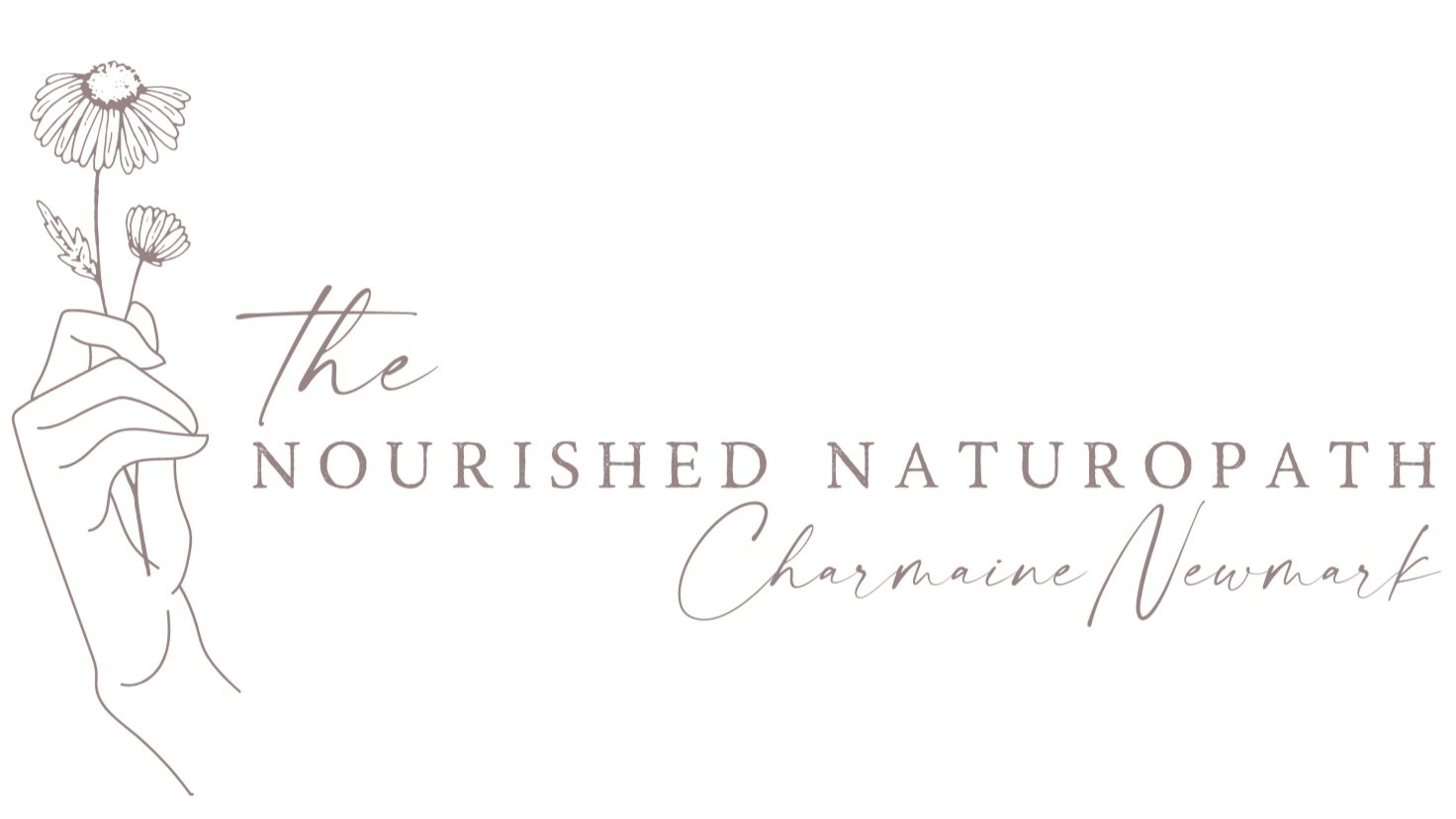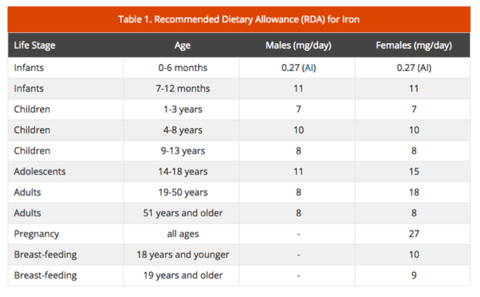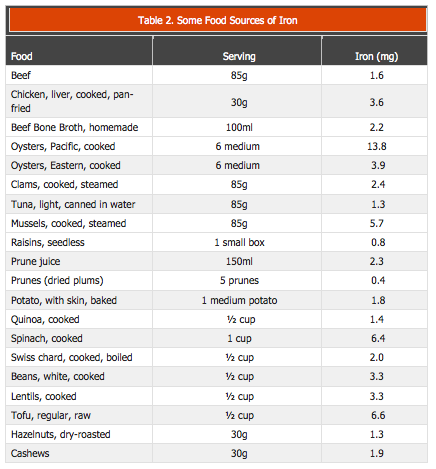Iron - Why it’s so important for your baby
I sat in mothers group recently, listening to the community nurse stress how important iron-fortified baby cereal is for bubs first food. My ears immediately pricked up... iron is certainly not for everyone and can be very tough on tummies, not to mention babies! There's iron-fortified baby cereal, iron-fortified breakfast cereal, high iron formulas and iron supplements all over our shelves... but is iron supplementation the answer?
Firstly let’s start with what iron is...
Iron is a mineral from our earth. Along with vitamins, minerals make the body go round. This is literal for Iron! Iron is essential, meaning we need to get it from our food sources. There are many different types of Iron, but the types our body likes is Ferrous and Ferric (Groff & Gropper, 2000). Iron can be found in meat and plant foods.
What does Iron do in our bodies?
Iron is a crucial mineral for the delicate balance of oxygen in our bodies. Iron helps oxygen move around the body and stores it for when it is needed. If you have low blood pressure (slow moving blood) AND low iron (not much blood moving around with not much oxygen in it) you will basically feel like you have been hit by a bus… all day long.
Iron is also crucial for making cells in our body. We make on average, 300 billion cells a day! Iron is especially crucial for producing immune cells so an iron deficiency will generally present with poor immunity. Tissue anyone?
Enzymes are little guys found all through the body. They are in a nutshell, catalysts for different reactions, e.g. ‘lactase’ is an enzyme, which helps breakdown dairy (lactose) molecules so it can be absorbed into the body. Iron is a big driver for many enzyme systems and without Iron, the right enzymes might not work to their full capacity. (Braun&Cohen, 2013)
How much Iron do we need?
Iron is essential, meaning we need to consume it on a daily basis, our body doesn’t make it. There are times in life that higher iron is required, such as pregnancy, during menstruation and women in general until menopause. The below table highlights our RDI (recommended daily intake) source
In the last trimester of pregnancy, most of mum’s iron is sent straight to bub and accumulates to have adequate stores for life on the outside. Breast milk and formula do not have very high levels of iron so the iron built up in the 3rd trimester is important and is roughly enough to last until 6 months old. However, the stores may be on the low side if Mum has low stores of iron or anaemia during pregnancy or suffered from preeclampsia or gestational diabetes. Babies born with a very low birth weight (and lower blood volume) or born preterm may also present with low iron levels.
Interesting fact! A review of randomized controlled trials suggested that infants with an early umbilical cord clamping (≤1 min after birth) are at least twice more likely to be iron-deficient at three to six months compared to those with delayed cord clamping. Cool huh!
It goes without too much technical info that the 1st year of a baby’s life is huge! The development and growth over just 12 little months is incredible and this calls for a bucket load of iron. (Even more then a full grown male!) So 6-12months, iron gets a workout and hence ‘iron fortified rice cereal’ has flooded the market as the best first food for bub. With all that developing going on… is rice really going to cut it? There’s a lot of conflicting data out there, mainly that babies do not make amylase – the enzymes which breaks down starches before 1 source however, studies suggest they do. There are so many cons to eating grains that to be honest, it’s tough for me to suggest a reason why rice cereal may be an ideal first food. Here are a few off the top of my head;
Grains are highly sprayed with pesticides that can wreak havoc on a teeny tiny liver and endocrine system.
Have you heard of the arsenic debate? Well the jury is still out at to wether or not it is a cause of concern.
How do you feel after a big bowl of rice? High five if you feel great but I feel sluggish and bloated!
Grains are hard work to breakdown! Yes we have been eating grains for as long as we know however, we used traditional soaking, fermenting and cooking to break them down as we intuitively knew we weren’t able to digest them properly ourselves.
Our digestive systems, as a nation are in chaos already. Our little gut bacteria’s are pretty bleak most of the time and as you can imagine, a little immature gut world of an infant may not have a whole lot of bacteria to assist with digestion.
Would you like a big side of blood sugar crash with your rice cereal? Carbs will pick you up and drop you, hard into a blood sugar crash. Something which fats and proteins don’t do.
Phytates in rice have been shown to reduce iron absorption by up to 65%!!!! source
Where can we find iron rich foods in nature?
There are two types of iron that we can get from foods:
Iron from animal sources is known as haem iron. It is absorbed in the small intestine and is 2-3 times absorbed then non-meat sources.
Iron from plant-based sources is called as non-haem iron. Non-haem iron is absorbed mainly in the stomach when it is consumed with other food substances and with the addition of stomach acids. source
So, what to feed my baby?
Below are some suggestions on iron rich first foods if you are wanting to avoid rice cereals.
Beef Bone Broth - Bone broth when prepared right can be a wonderful addition to a babies diet (and yours). Please see a great blog here on the benefits. I purchased a bag of grass fed, free range, hormone free beef bones from our local farm for $5! And made about a 2 litres of broth. For my son, I didn’t add anything other then a teaspoon of apple cider vinegar, covered the bones in filtered water and cooked in the slow cooker for about a day on low. I add it into his other foods and he also drinks it from a sippy cup instead of water.
Chicken Liver – The liver is a detoxifying organ so I cant stress enough, the importance of using organic livers. Livers don’t need to be prepared all fancy! Freeze your livers and grate them into other foods like egg yolk, avocado, potato. Western A Price go into great depth on the benefits.
Organic Tofu – Sautee tofu in olive oil and mash in with some avocado, mash or egg yolk and you have yourself a very nutrient dense, tasty meal.
I’m not here to tell you what to do, a mothers own intuition is absolutely best. I will say though, take charge of your families health. Its hard to make up your own mind, especially if its shoved down your throat on TV, at mothers group, in brochures etc but please do your research and figure out what’s best for your baby, given your own health and do what feels right for you. We are all so different and what works for some, is not best for all. As always, please seek your own medical advice and start each food slowly and individually
For more information, please feel free to contact me here and enjoy getting everything covered in mashed up mess!



